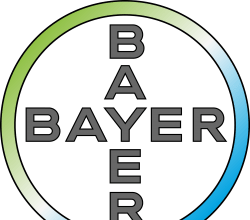The HIPAA law requires businesses to take steps to safeguard PHI from unauthorized access, use, or disclosure. Businesses must also ensure that PHI is properly disposed of when it is no longer needed. Failure to comply with HIPAA can result in significant fines and penalties. We mentioned that HIPAA compliance is vital in the healthcare sector, but other businesses might need to be aware of it as well if they store personal health information.
To avoid these consequences, businesses must take steps to ensure that they are in compliance with the law. Businesses spend over $8.3 billion a year on HIPAA compliance. You will want to take the right steps to avoid costly fines. The first step is to understand the HIPAA requirements and how they apply to your business.
Once you have a clear understanding of the law, you can develop policies and procedures to ensure that PHI is properly safeguarded. You should also train your employees on the requirements of HIPAA and how to comply with them. By taking these steps, you can help ensure that your business is in compliance with the law and protect the privacy of your customers’ personal health information. You can also get services from defensorum for help with HIPAA compliance.
Administrative Safeguards:
These safeguards are put in place to protect PHI from being used or disclosed inappropriately. They cover areas such as risk analysis, risk management, workforce training, and incident response procedures.
Physical Safeguards:
These safeguards are designed to protect electronic PHI from unauthorized physical access, destruction, or theft. They include things like data backup and disaster recovery plans, security measures (e.g., access control systems), and physical security plans for facilities housing electronic PHI.
Technical Safeguards:
Technical safeguards are security measures implemented to protect electronic PHI from unauthorized access, destruction, or alteration. They encompass areas such as data encryption, user authentication controls, and activity logging. You will want to find a HIPAA compliant hosting platform.
Organizational Safeguards:
Organizational safeguards are policies and procedures put in place by covered entities to ensure compliance with the other five safeguard categories. They typically address issues such as business associate contracts and agreements, workforce training and education, and risk assessment processes.
Policies and Procedures:
Covered entities must develop policies and procedures related to all aspects of HIPAA compliance. These policies and procedures must be documented, consistently enforced, and reviewed on a regular basis to ensure that they remain effective.
Documentation Requirements:
Each business must keep a record of the administrative, physical, and technical safeguards it has in place to protect PHI. This documentation must be updated on a regular basis and made available to the HHS Office for Civil Rights upon request. All covered entities must keep detailed documentation of their HIPAA compliance efforts. This documentation must include policies and procedures and records of employee training and risk assessment processes.
This documentation must be kept up to date and reviewed on a regular basis to ensure that the covered entity remains in compliance with the law. Covered entities must maintain accurate documentation of their compliance efforts with all six safeguard categories listed above. Upon request, this documentation must be readily available for inspection by Civil Rights.
Privacy Assessment:
A privacy assessment is a critical component of any HIPAA compliance plan and HIPAA risk assessment. Covered entities must conduct a thorough assessment of their privacy practices on a regular basis to ensure that they are in compliance with the law. The assessment must include a review of policies and procedures, employee training, and risk assessment processes.
HIPAA requires covered entities to conduct a privacy assessment before acquiring or disclosing any PHI information. The purpose of this assessment is to determine whether the proposed use of PHI would result in an undue risk of identity theft, fraud, or other illegal activities. The assessment should also consider how the proposed use of PHI will affect the privacy rights of individuals who are affected by it.
Authorization and Consent:
Every time PHI is disclosed or used, you must obtain authorization from the individual whose information is being used or disclosed. This authorization must be in writing and must specify the purposes for which the information will be used. You must also obtain the individual’s consent if the use of PHI involves any disclosure of sensitive information, such as a mental health diagnosis or treatment records.
Safeguards of Confidentiality:
There are several safeguards of confidentiality that every business needs to be aware of in order to ensure HIPAA compliance. Firstly, authorization must be obtained from the individual every time PHI is disclosed or used. This authorization must be in writing and specify the purpose for which the information will be used. Secondly, consent must also be obtained from the individual if the use of PHI involves any disclosure of sensitive information.
Lastly, covered entities must maintain accurate documentation of their compliance efforts with all six safeguard categories listed above. Upon request, this documentation must be readily available for inspection by Civil Rights. HIPAA requires covered entities to take appropriate steps to protect the confidentiality of PHI. This includes measures to protect the privacy of individually identifiable information, such as by restricting access to that information and encrypting it when it is transmitted over open networks.
Security:
In order to ensure the security of PHI, covered entities must take appropriate measures to protect the confidentiality of the information. This includes restricting access to PHI and encrypting it when it is transmitted over open networks. Covered entities must take all reasonable steps to protect PHI from unauthorized access, destruction, alteration, or release. This includes implementing technical safeguards (e.g., data encryption) and organizational safeguards (e.g., policies and procedures).
Reviewing and Updating Procedures:
As part of HIPAA compliance, covered entities must regularly review and update their procedures for safeguarding PHI. This includes ensuring that all reasonable steps are taken to protect the confidentiality of the information, such as by encrypting it when it is transmitted over open networks. Covered entities must also have policies and procedures in place to prevent unauthorized access, destruction, alteration, or release of PHI.
HIPAA requires covered entities to review and update their procedures on a regular basis to ensure that they are effective. The HHS Office for Civil Rights will audit covered entities every two years to ensure compliance with HIPAA requirements.
Final Thoughts:
Compliance with the HIPAA rules is mandatory for all covered entities. However, HIPAA compliance is not a one-time event but an ongoing process that requires constant vigilance.” Failure to comply with any of the above-mentioned requirements can result in costly fines and penalties from the OCR. As such, covered entities need to take steps to ensure that they comply with all of the applicable HIPAA regulations.









